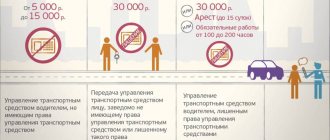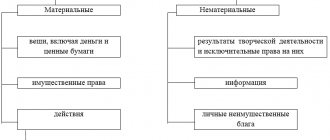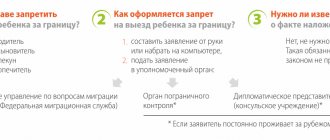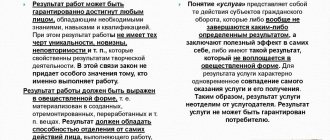Is a transaction aimed at restricting competition recognized as void?
According to Article 166 of the Civil Code of the Russian Federation, a transaction may be void:
- by itself (due to an error in conclusion);
- for legal reasons;
- due to the recognition of this by the court (challenged).
Article 168 of the Civil Code of the Russian Federation states that a transaction that violates the law is voidable if the law does not provide for the application of other consequences of the violation unrelated to the invalidity of the transaction. This means that a deal that goes against the requirements of the law can be considered void. Clause 1 of Art. 10 of the Civil Code of the Russian Federation calls it unacceptable to exercise civil rights with the intention of causing harm to another person, as well as when trying to achieve a deliberately illegal goal. It is legal to have a dominant position in the market. Every company strives to be better than its competitors, and those companies that succeed can become almost the only monopolists in their industry. But the law prohibits the abuse of such a dominant position and the use of one’s rights to restrict competition. This means that Article 10 of the Civil Code of the Russian Federation expressly prohibits transactions that restrict competition. Although the provisions of the article in question, as well as the code as a whole, do not directly stipulate the possibility of invalidating a transaction made with the aim of limiting competition in the market, the court has the right to recognize such a transaction as void. After all, it violates the prohibition established by paragraph 1 of Article 10 of the Civil Code of the Russian Federation, which means it is contestable.
Liability associated with causing harm
This is the burden that the offender who caused the damage bears. Here we can distinguish the following varieties:
- compensation for harm to human health or life (the object of compensation is property losses, for example, funeral expenses, treatment);
- compensation for damage due to injury or damage to health (payment of lost earnings or other income of the victim);
- compensation for moral damage and compensation for additional expenses (for example, sanatorium treatment, professional retraining, etc.);
- compensation for harm to dependents in connection with the death of the breadwinner;
- compensation for losses due to low-quality goods, work or services.
For information! Civil liability associated with causing harm is considered in detail in Chapter 59 of the Civil Code of the Russian Federation.
Does the arbitration court have the right, without an application from a party to the proceeding, to apply the provisions of Art. 10 Civil Code of the Russian Federation?
This article does not allow actions of citizens and legal entities committed with the obvious intention of causing harm to someone, as well as other abuses of law. P 2 tbsp. 10 of the Civil Code of the Russian Federation directly states that an arbitration court may refuse to protect a person’s rights if he exercised them in violation of the above norm. Arbitration courts use the norms of this article, as well as all other norms of civil law, regardless of the application of the parties to the arbitration process. Therefore, when making decisions, the arbitration court has the right to apply the provisions of Article 10 of the Civil Code of the Russian Federation, even if they are not stated by the party to the proceeding.
Civil rights and freedoms of citizens
Civil rights and freedoms of citizens are the opportunities that every citizen has in the sphere of personal life. They are designed to ensure the independence and autonomy of people in their private lives, protection from interference in their inner world. Personal rights and freedoms cover a wide range of universal human values, without the observance and protection of which the existence of a person as an independent and independent person is impossible.
Civil rights and freedoms are recognized by the state and are enshrined in the Constitutions of the Russian Federation and the Republic of Tajikistan and other laws that comply with the Universal Declaration of Human Rights, international covenants on human rights, as well as other international standards. Rights and freedoms belong to a person regardless of his citizenship.
Let us consider the civil rights and freedoms of citizens in detail. Every person has the right to life (Article 20 of the Constitution of the Russian Federation, Article 31 of the Constitution of the Republic of Tajikistan). This is the most important and inalienable human right, a guarantee of his worthy existence.
The state takes upon itself the protection of people from illegal attacks on their lives. No one can be arbitrarily deprived of life. The death penalty for especially serious crimes against the lives of other persons is established by federal law as an exceptional punishment.
Deprivation of life is not considered a violation of the right to life if it is the result of protection from unlawful violence, a consequence of necessary defense or extreme necessity, or occurs during war.
The right to freedom and personal integrity means that a person is provided with protection from unlawful attacks on life, health, and personal freedom (Article 22 of the Constitution of the Russian Federation, Article 33 of the Constitution of the Republic of Tajikistan). The desire for freedom is one of the most powerful human feelings. A person associates the implementation of his plans and desires with freedom. In a word, only a free person has the opportunity to make an informed choice.
A citizen is free and has the right to perform any actions that do not contradict the law. At the same time, he should not be subjected to any coercion or restriction of rights. He independently determines his actions, using himself and his time. Freedom and personal integrity can be limited only by competent government bodies and only in accordance with the procedure established by law. For example, no one can be arrested or detained except on the basis of a court decision or with the sanction of a prosecutor. In case of arrest or detention, a citizen has the right to appeal these actions in court.
Every person charged with an offense is presumed innocent until proven guilty according to the law through due process of law. Persons deprived of their liberty have the right to be treated humanely and with respect for their dignity. No one should be subjected to torture, cruel, inhuman or degrading treatment or punishment. Without the voluntary consent of a person, one cannot subject him to medical, scientific or other experiments.
The state guarantees the right to defense (Article 46 of the Constitution of the Russian Federation, Article 46 of the Constitution of the Republic of Tajikistan). If a person cannot pay for a lawyer, legal assistance is provided to him free of charge.
The state is obliged to protect the dignity of the individual (Article 21 of the Constitution of the Russian Federation, Article 32 of the Constitution of the Republic of Tajikistan), nothing can be a basis for its derogation. Let us pay attention to the categorical, unambiguous nature of this statement. Nothing, no considerations of benefit or goodness can justify the humiliation of an individual.
What do we mean by dignity? Dignity is the recognition of a person’s special spiritual, moral, volitional and intellectual qualities. Safeguarding dignity means the right to be respected by others. People differ in their physical, intellectual and other qualities, property and social status. But the law equally protects their dignity. The inner moral dignity of a person, the honor of a person. Many people are sensitive to protecting their honor and dignity. The German poet and playwright Johann Friedrich Schiller (1759-1805) wrote: “Honor is more valuable than money.” In the old days there was a proverb: “A nobleman will not betray his honor, even though his little head will perish.” For insulting honor and dignity, they were challenged to a duel, and often died.
Remember the story of the death of A.S. Pushkin. When they began to talk about his wife Natalie’s betrayal, linking it with the name of Dantes, he challenged him to a duel. Pushkin's enemies fueled this dirty rumor. The poet decided to defend his honor and the honor of his wife in a duel. He assumed that he might die, but he preferred a duel and death than a life of dishonor. Did Pushkin have another way out? If there had been a law on the protection of dignity and honor, he could have gone to court.
But then such a procedure did not exist.
Under Russian law, a citizen has the right to demand in court a refutation of information discrediting his honor, dignity or business reputation and compensation for losses and moral damage caused by their dissemination. In those cases where attacks on honor and dignity have elements of a crime, the person guilty of this is brought to criminal responsibility.
Every citizen is ensured the inviolability of their home (Article 25 of the Constitution of the Russian Federation, Article 55 of the Constitution of the Republic of Tajikistan). This is an essential element of human freedom. No one has the right to enter a home and conduct a search or inspection against the will of the persons living there, except in cases and in the manner prescribed by law. A search is carried out in connection with a criminal case initiated by a reasoned decision of the investigator and only with the sanction of the prosecutor.
The secrecy of correspondence, telephone conversations, telegraph messages and the use of other means of communication is guaranteed by law (Article 23 of the Constitution of the Russian Federation, Article 36 of the Constitution of the Republic of Tajikistan). No stranger can read other people's letters or eavesdrop on other people's telephone conversations. Violation of this right entails legal liability. Exceptions from this rule are established only for law enforcement agencies of the state, and then only in cases and in the manner prescribed by law. Seizure of correspondence and wiretapping of telephone conversations is possible only during criminal proceedings and not otherwise than with the sanction of the prosecutor or by determination or order of the court.
The Constitution enshrines the right of everyone to privacy, personal and family secrets, and protection of one’s honor and good name. Private life is the sphere of family, business, and friendly relations between people.
There is such an episode in the famous comedy by Leonid Gaidai “The Diamond Arm”. The hero of the film gets into a taxi at the entrance of the house, holding a string bag in his hands. A vigilant social activist, seeing this, says: “Soviet people don’t take a taxi to the grocery store.” Wanting to expose him, she organizes surveillance of him and mobilizes “public” opinion. Suspicion and desire to look into the personal life of the tenant of their house, i.e. seeing something that should not concern anyone leads to a violation of the right of this citizen. It turns out that he did not violate anything; on the contrary, he helped law enforcement agencies. Do you think the assessment of the behavior of the “social activist” would change if the tenant turned out to be a criminal thief?
A person has the right to live the way he likes. In private life, a person seeks to satisfy personal interests. The collection, storage, use and distribution of information about a person’s private life without his consent is not permitted. A citizen has the right to familiarize himself with documents and materials that directly affect his rights and freedoms, unless otherwise provided by law. Every person has the right to free movement within the country, choice of place of residence and residence, free entry and exit from the country (Article 27 of the Constitution of the Russian Federation, Article 39 of the Constitution of the Republic of Tajikistan). Restrictions on this right can only be established by law. Citizens have the right to freely leave Russia, the Republic of Tatarstan and return at any time; they cannot be evicted from the country.
In the recent past, this right was grossly violated in our country. Residence was limited by the possibility of registering with the local internal affairs agency, and movement was limited to places where entry could only be carried out with a special permit. Only a few could travel abroad after a thorough security check. An objectionable person was expelled from the country, and then not allowed back in. This was the case with the writer A.I. Solzhenitsyn. Our famous musician M. Rostrapovich and his wife, the talented singer G. Vishnevskaya, were also deprived of citizenship and were also not allowed into the country.
Citizens are guaranteed freedom of conscience and religion (Article 28 of the Constitution of the Russian Federation, Article 37 of the Constitution of the Republic of Tajikistan). In accordance with their convictions, everyone has the right to freely choose and profess any religion or not to profess any, have, disseminate religious or atheistic views, act in accordance with them, engage in religious or atheistic upbringing and education of children. The state respects the freedom of parents to provide religious education to their children in accordance with their convictions and choices. Freedom of poisoning of religious cults and ritual ceremonies is allowed. The right to create religious and other associations and to receive religious education has been proclaimed and guaranteed.
Persecution of a believer for his religious beliefs is a dangerous phenomenon. Religious fanaticism and intolerance towards believers of other religions are no less dangerous. Remember from your history course the bloody religious wars in France, England, and Russia.
It is prohibited to incite hostility and hatred in connection with religious beliefs. In accordance with the law, the equality of citizens is guaranteed regardless of their attitude to religion. All religious associations are equal under the law. Religious and atheistic associations are separated from the state; state bodies and officials do not interfere in matters of their activities. At the same time, the state protects the legal activities of religious organizations. Persons guilty of violating legislation on freedom of religion and conscience bear legal responsibility.
Every citizen has the right to determine and indicate his nationality, he is free to choose the language of communication, education, training and creativity, including the right to use his native language (Article 26 of the Constitution of the Russian Federation, Article 34 of the Constitution of the Republic of Tajikistan). You cannot be forced to determine and indicate your nationality. Using their native language is still difficult for many. The implementation of this right requires an increase in schools and preschool institutions in which children are taught in their native language.
Every citizen is guaranteed freedom of thought and speech; no one can be forced to express their opinions and beliefs or renounce them (Article 29 of the Constitution of the Russian Federation, Article 42 of the Constitution of the Republic of Tajikistan). These rights contribute to the spiritual and moral independence of man, and consequently to political and ideological diversity. Without these rights there is no real development of society.
Freedom of obtaining information is equally ensured (Article 29 of the Constitution of the Russian Federation, Article 48 of the Constitution of the Republic of Tajikistan). This right is much broader; it means not just to receive, but also to freely search, transmit, produce and distribute information in any legal way. Freedom of establishment of mass media (printed periodicals, radio, television and video programs, newsreels) is guaranteed. Censorship is prohibited. The use of this right is subject to certain restrictions with only one purpose - the protection of state secrets, morality, rights and freedoms of other persons. Abuse of freedom of the media or use to commit crimes is not permitted.
As we can see, the law provides for a very wide range of personal rights and freedoms . But we must always remember, as indicated in Art. 17 Constitution of the Russian Federation, art. 27 of the Constitution of the Republic of Tajikistan, that the exercise by a citizen of his personal rights and freedoms should not contradict the personal rights and freedoms of other people. The exercise of these rights and freedoms is also incompatible with actions that harm state and public security, public order, health and morality of the population, and the protection of the rights and freedoms of others.
Preventive measures
Prevention means taking measures to prevent violations from occurring. What do they include?
- changes in the structure of government bodies and their powers;
- changes in legislation.
Civil offenses and their prevention, unfortunately, are not something that the state pays due attention to. An example is collection activities. The relevant law was adopted in 2021, although the need for it arose a long time ago. Changes in legislation have helped bring the market for these services into a civilized form, and the number of violations, especially those bordering on criminal activity, has decreased. Collection companies that violate the civil rights of debtors are held accountable and are subject to serious fines. All this forces them to stay within certain limits.
A unified data system about debtors of credit organizations is being created. Information from it will help to glean information about the person applying for a loan. This will help avoid excessive debt burden on citizens. The risk of getting a black mark and being left without a chance to get a loan anywhere else encourages you to behave more conscientiously.
It must be said that changes in legislation are often insufficient; some problems are not paid attention to at all.
Attempts at educational activities are either insufficient or lead to the opposite effect. Citizens do not really trust officials.






